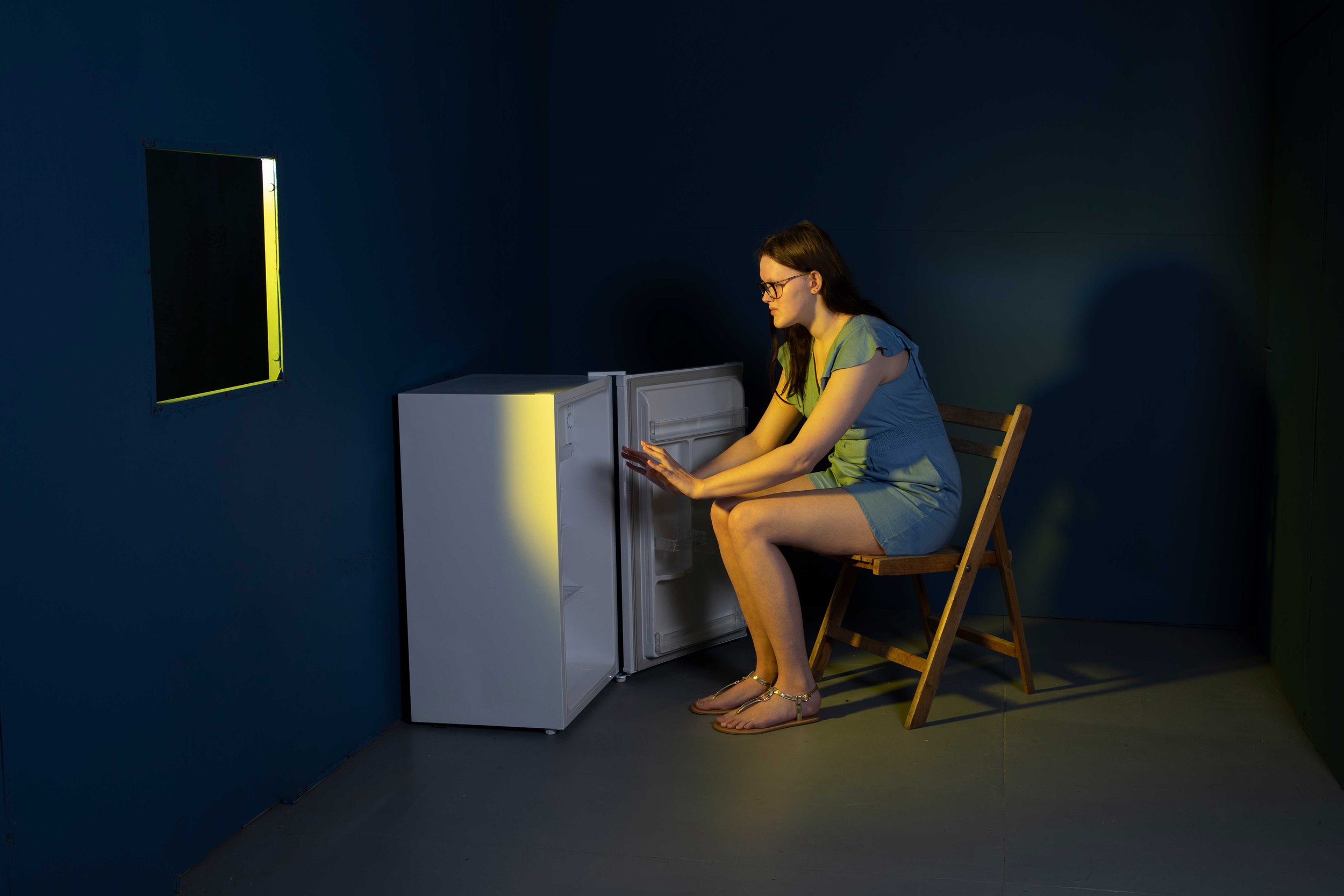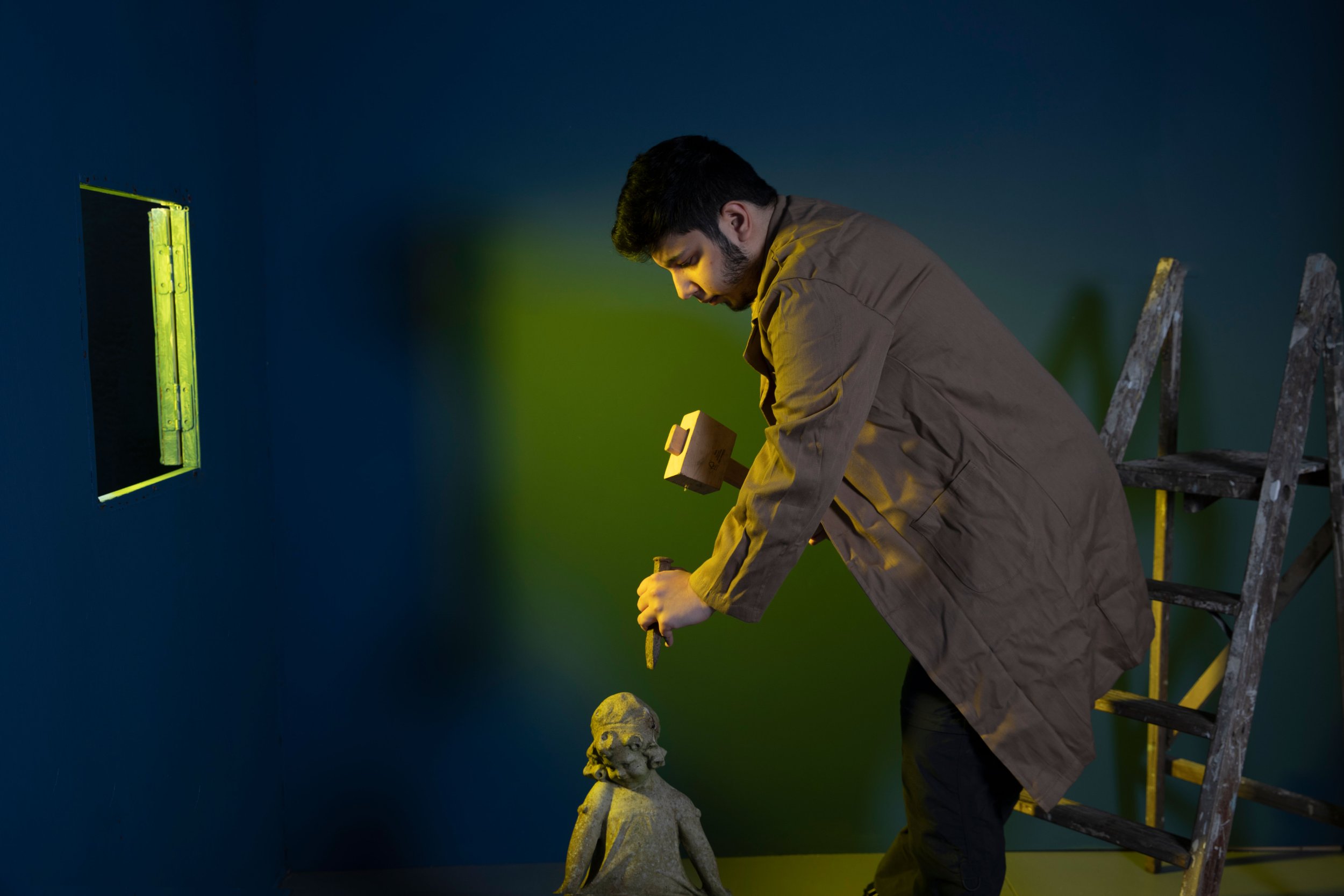Life with Behcet’s is unpredictable, debilitating and the diagnosis was life-changing.
In early 2005 Michelle was enjoying her life as a newly-wed and had a young toddler, life was great. She was very active, fit and worked full time but seemingly became chronically ill almost overnight.
I went downhill very quickly, but apparently, I had already had symptoms. I’d always suffered from ulcers, I'm talking thirty ulcers at any one time, but after I had my son my joints started swelling and I was getting headaches. I couldn't walk. I was in a lot of pain and it just seemed to come on overnight.
Michelle started getting large genital ulcers. The ulcers were painful and she tried not to go to the toilet for a while because it was burning that much, even reducing her liquid intake in the hope she wouldn’t need to go as often. Building up the courage and desperate for help she turned to her GP. This didn’t help as the GP asked her how many boyfriends she had been with, implying that it was Herpes or an STD, this upset and embarrassed her. On asking if there was anything that she could use on the ulcers to help ease the pain she was told that there was nothing that might help (later, through Behcet’s support groups she discovered that using Vaseline would have helped). On top of dealing with the ulcers and pain she ended up with an internal infection and fever and lost a lot of weight.
You just never know where the symptoms might strike.
I just lost so much weight, three stones in six weeks. People would see me and ‘say oh my god, what's happened?’ My clothes were hanging off me because I was so unwell. I also had lots of lesions on my face. The lesions are very unsightly and sore, and I just looked a mess. The arthritis symptoms started appearing and I started having joint pain. I went from being super healthy to really ill.
Photograph by Ceridwen Hughes for Days of Rare exhibition
The diagnosis really impacted Michelle’s mental health.
Michell was referred to see a rheumatologist called Professor Moots at Aintree University Hospital in Liverpool, who diagnosed her with a very rare, complex autoimmune disease called Behcet’s Disease or Behcet’s Syndrome. It felt like the bottom had fallen out of her world. After she returned home from her appointment and diagnosis she did what many of us would do and turned straight to the internet. She was absolutely terrified with what she had read and started having panic attacks.
I couldn't sleep at night. I was so worried that I would go blind or have a stroke. All the worst-case scenarios played out in my head. I cried myself to sleep every night for a year before my GP convinced me to try cognitive behaviour therapy (CBT). It was the first of many counselling sessions I participated in over the years. Then one day the penny dropped. I had to stop worrying over things that might not happen. The shock of my diagnosis and how my life had changed dramatically really hit me hard.
Behcet's disease, also known as Bechet’s syndrome, is a rare disorder that causes blood vessel inflammation throughout your body. The disease can lead to numerous signs and symptoms that can seem unrelated at first. They can include mouth sores, eye inflammation, skin rashes and lesions, and genital sores.
Diagnosis took many years and could have happened sooner.
She was diagnosed fairly quickly, her illness started in March and she had a diagnosis by May. Michelle could have been diagnosed much earlier. A dentist 10 years previously had written ‘Bechet’s’ with a question mark in her notes after she had visited him over her mouth ulcers, but he hadn’t mentioned this to her. It was only discovered years later after an appointment with the maxillofacial department.
Professor Moots has been a lifeline to Michelle. He provided as much information as he could and has provided care throughout, even offering to help her GP with whatever support he needed to help provide care and treatments. However, the GP wasn’t very receptive to the idea.
Professor Moots gave me some leaflets and his business card and he said to me that the GP is going to struggle to treat you because it was something like 1 in 100,000 people then who got diagnosed. Professor Moots suggested that I tell the GP that if he wasn’t sure how to treat me to tell him to give him a call. When I told my GP and gave him the leaflets, he said he wouldn't take them, that it wasn’t worth it for just 1 out of his 6000 patients. Back then I was too scared to put a complaint in, but after a few years, my confidence came back. I changed surgeries and it was the best thing I did.
Photograph by Ceridwen Hughes for Days of Rare exhibition
Before her symptoms progressed Michelle lived life to the full.
Her life has changed so much since her diagnosis 17 years ago. Before becoming ill she lived life to the full and had enjoyed working abroad in places like Ibiza, working ski seasons and at the Sydney Olympics. Michelle loved her career and was in her early thirties when she met her husband and they decided to settle down and have children. Shortly after she fell ill and life changed irrevocably. Now she had to learn how to navigate her way through her new life, with GP appointments, blood tests, drug pathways, funding, and prescriptions, it was a lot. All on top of being chronically ill and struggling to manage day-to-day life.
Although we’d wanted more children we chose not to have any more because of my ill health. Sometimes it hurts that my son's an only child and I worry about him being on his own. I would have loved him to have a brother or a sister but it was just too much to try, I couldn't have held a baby. When I look back I don't know how I coped with a child. It was really difficult, but I'm so glad I did it and I'm so grateful.”
Living with Behcet’s affects every part of your life, even sleeping because you’re in so much pain and can't move. Managing fatigue is difficult. You have to pace yourself. So if you do have an appointment, you don't make appointments for the day before or the day after because you're so worn out. You can’t make plans because you don't know how you're going to be on that day. I have had to learn to live in constant pain. I have tried many techniques and medications to help to cope with it. There are days I can't walk or do self-care for myself. My husband has to help me out of bed. He helps me get dressed. He showers me. I have lost my independence. It's very difficult when you have an invisible illness, people always say ‘Oh, you look well.’ I think sometimes people would understand more easily if I had a missing limb. They don't see you crying and in pain, or unable to walk, being carried upstairs, or being unable to dress yourself.
Michelle has built a new and different life to the one she thought she would have.
On top of losing her career, she had to give up on her hobbies and her future plans for what she wanted to achieve in her life. The illness took so much from her. Michelle says she grieves for the life that she wanted and she finds it very emotional to talk about. Not being able to fulfil her dreams has been so hard for her to deal with. Being in touch with The Behcet’s Syndrome Society has helped her. Through the support groups, she has built up new friendships with people that understand her condition and the way she has to live her life now.
The friends I had pre-diagnosis soon fell by the wayside, and that hurt me greatly. Most of my friends now have chronic conditions themselves. I have met them at some of the hundreds of hospital appointments I have attended, or at one of the many support groups I have joined. I feel more comfortable with people who have empathy and mutual understanding of things like pacing yourself, having to cancel plans at short notice, or ‘fibro fog’ which means you might completely forget what you're talking about mid-sentence.
Now she looks at life differently and wishes there was more understanding and awareness out there of conditions like Behcet’s as so many people struggle daily without answers or understanding. Looking back now she says
The most important lesson I have learned is never to take good health for granted. To appreciate the little things that life has to offer. There have been some really, really dark times and it can wear you down. But at the moment I'm feeling quite strong mentally, and although my health is poor, I am lucky to have such a loving, caring husband and a wonderful son. I couldn't cope without them. I love them with all my heart. This is what keeps me going every day.
BEHÇET’S UK
The organisation supports all UK patients with Behçet’s, including those who've yet to be diagnosed, guiding them through the rare and complex lifelong condition.
You can listen to Michelle chat with Ilmarie Braun, Same but Different Project Manager on our podcast channel.







